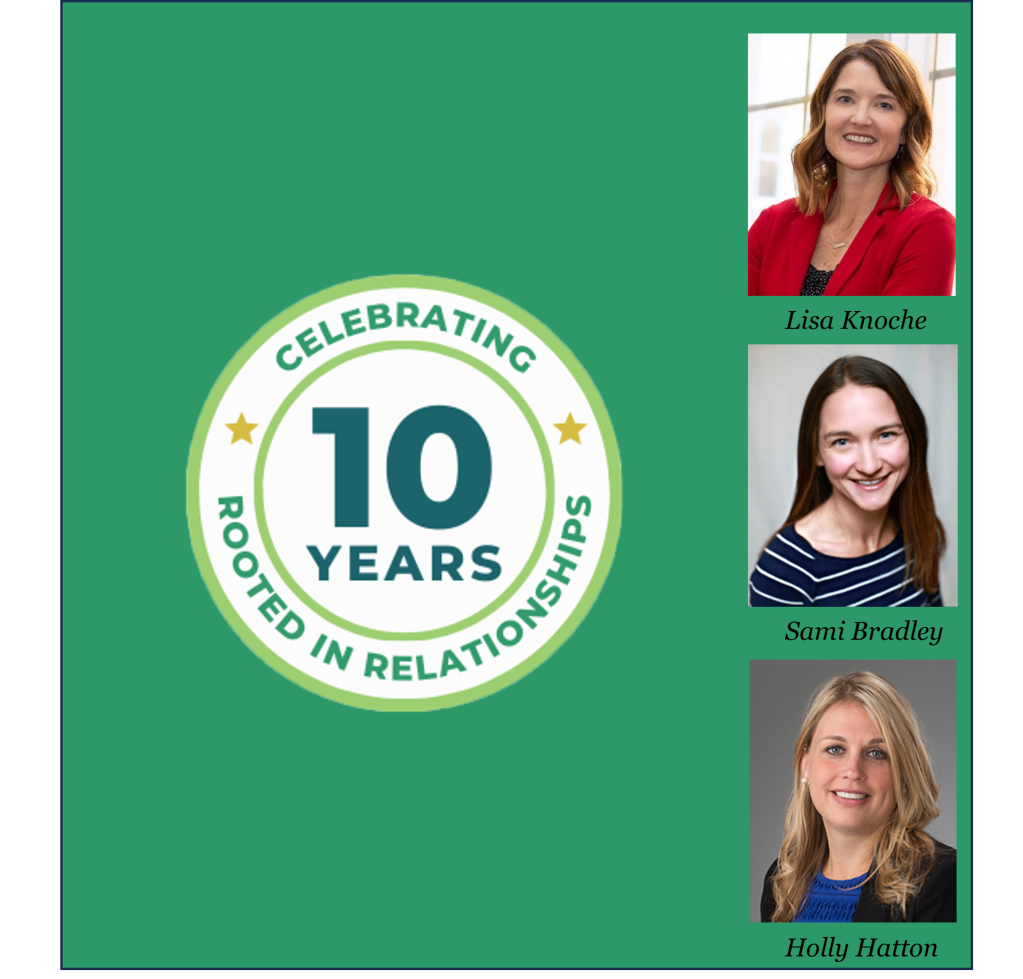Since its inception over 10 years ago, Rooted in Relationships has held as one of its core principles working with communities to build early childhood mental health infrastructure, particularly through the use of the Pyramid Model and the development of social emotional skills. So when Lisa Knoche, co-director of the Nebraska Center for Research on Children, Youth, Families, and Schools, asked the Rooted team if they wanted to partner on a project that would incorporate the Pyramid Model, that would focus on the well-being of early childhood professionals and the children they care for, and that would help build infrastructure that would ease the stresses on an overburdened childcare field the answer was obvious.
The result was a promising collaboration. Knoche had applied for a Grand Challenge grant through the University of Nebraska-Lincoln, a proposal that involved a collaboration between Getting Ready, Rooted in Relationships, and CHIME (Cultivating Healthy Intentional Mindful Educators). Knoche learned in the fall of 2023 that the group had received a $3.44 million Grand Challenge Catalyst award to pursue their project “TransformED” over the next 5 years.
The project, Knoche explains, looks to alleviate stress on early childhood professionals who are coping with higher rates of disruptive child behavior, who could benefit from additional trainings, but who also are often stretched to their limits. The project has 3 aims: to create partnerships and public awareness; to build competencies for the workforce; and to increase retention of the early childhood workforce.
Sami Bradley, from the Rooted team, details the dilemma that initiatives designed to assist educators face, “we know that all of these practices can be helpful for providers, but they can also be overwhelming when they are provided separately.” Knoche says that coaches for the different initiatives see overlaps that perhaps create redundancies, cause confusion, and take more time away from educators. There are, for example, coaches for each approach and educators are, according to Knoche, reporting, “I’m hearing this from Rooted work and this from my Getting Ready work.” To alleviate stress, Bradley says the collaborative will look at “how these practices can best be integrated so as not to overwhelm providers.”
But the overall aim is about more than alleviating stress. Holly Hatton, the principal investigator for CHIME, says, “I think we have these 3 great programs, so how can we make something not just to alleviate burden but that is also more impactful and sustainable.” Hatton, who has worked with Knoche on several other projects, says the group is trying to find the targeted pieces of each approach that are essential and need to be kept. From there, they will look to streamline.
Knoche sees the logical dovetail of the approaches, with Getting Ready aimed at families, CHIME aimed more at educators, and Rooted’s Pyramid Model as the practical classroom application uniting the approaches. Hatton connects the dots when she says the group can draw from Getting Ready’s “tons of data about how to support families alongside teachers.” She then notes that CHIME is clearly connected to the first tier of the Pyramid Model, which focuses on an effective workforce.
For the first 2 years, TransformED will use a “design-based research frame” to bring together the approach. A design team composed of content experts, trainers/coaches, and educators from each initiative will work together to review each approach, look for overlaps, and discuss ways to streamline or integrate the approaches. Hatton points out that it is key to “learn with educators what the gaps are that we’re not addressing and build relationships so that we are truly co-creating a professional learning experience.”
Planning is in its earliest stages, so representatives of the initiatives are not yet sure what they will discover or how exactly streamlining will occur. They have, however, begun to explore possibilities such as training coaches in all 3 approaches so only one coach works with an educator and packaging the three approaches so they’re delivered in a sequence rather than overlapping.
What is clear is that TransformED accents Rooted in Relationships’ mission to collaborate with communities and with other state entities so as to build stronger infrastructure for early childhood mental health. As Bradley puts it, “It’s imperative to continue to collaborate with other initiatives and programs that support child care providers and the rest of the early childhood workforce. If we can figure out how to integrate practices, we can reduce redundancy and maximize impact.” What better way then for Rooted to celebrate its first 10 years and to set off on the next 10 years of working with communities and with state partners.


Leave a comment